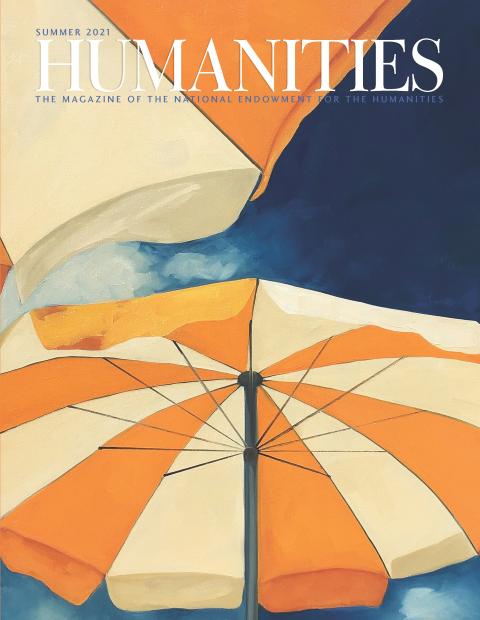We return in time for the fun part, summer. Had this post-quarantine reunion happened during winter, it might have been anticlimactic. Instead, as people leave their homes, shedding caution and forgetting their face masks, they come bare-legged, bare-midriffed even, huffing and puffing down jogging paths and talking loudly in restaurants.
John Cheever understood that summer is a stage and the backyard barbecue a comedy of manners as old Neddy Merrill traipses through, unexpected but not exactly unwelcome. Cheever belonged among the New England suburbanites he wrote about, but in other ways he was an outsider, a spy gathering intelligence and filing reports back to headquarters. For this issue, longtime contributor Peter Tonguette read a whole stack of Cheever, looking for the author hiding among his own words.
Amy Stanley worked for years to penetrate the layers of time and geography separating her from her subject, a woman named Tsuneno who lived in Edo-period Japan. Professor Stanley didn’t count on the help she would get by listening to contemporary women tell stories of being mistreated, abused, and ignored, but doing so helped her see what she had been missing in the stack of old family letters between Tsuneno and the clan she had run away from. Stanley’s book, Stranger in the Shogun’s City, supported by two NEH grants, recently won the National Book Critics Circle Award, among other laurels. In an interview, Stanley explains how she wrote the book and what she expects readers to get out of it.
Another NEH-supported book enjoying critical acclaim is All That She Carried: The Journey of Ashley’s Sack, a Black Family Keepsake by NEH Public Scholar Tiya Miles. In an excerpt, Miles explores her own memories of the storytellers in her family as she reflects on the role of handcrafts in bearing the history not just of women and families but peoples.
For many of us, the pandemic has been a period of contemplation, during which we have taken stock of how we live and what we live for. That many of us were so inclined to deep reflection may have been predicted by the recent vogue for mindfulness and meditation. In this issue, James Flynn traces the roots of the mindfulness movement to its Buddhist sources, showing how this Eastern spiritual practice caught on with neuroscientists and others interested in the path to inner peace.
A rather different philosophical approach is considered and questioned in this issue by Benjamin Storey and Jenna Silber Storey, authors of a new book called Why We Are Restless: On the Modern Quest for Contentment. The subject of their essay is Montaigne and his recommendation that we seek happiness through a diverse balance of light commitments. Perhaps, as the Storeys suggest, it is instead through a heavy diet of truth seeking that we might learn what it truly means to be human.

